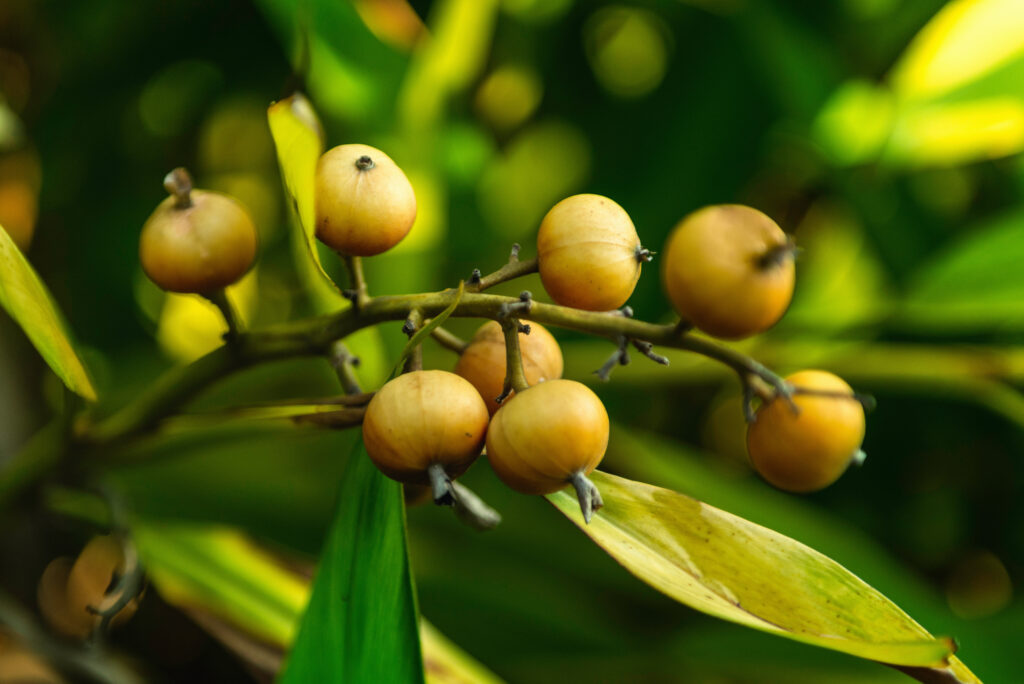Nutmeg is a spice made from grinding the seed of the Myristica fragrans tree, an evergreen native to the Maluku Islands of Indonesia. It has been used for thousands of years both as a flavoring agent and as an herbal medicine to treat abdominal pain, diarrhea, oral mucosal diseases, joint pain, and insomnia. Modern studies have found that nutmeg and its components contain pain relieving, anti-inflammatory, and perhaps even anti-cancer properties.
Nutmeg is also a significant natural source of antioxidants, which makes it particularly interesting to anti-aging researchers. Most recently, a team of Korean scientists set out to test the potential anti-aging effects of nectandrin B (NecB), a bioactive lignan compound isolated from nutmeg. Their research was published in the journal Aging.
The Study
To test the efficacy of NecB, the researchers divided 150 male and 150 female D. melanogaster fruit flies into groups that were fed five different diets. A normal diet, a normal diet with either 50 mcg/ml or 200 mcg/ml of the anti-aging drug rapamycin, and a normal diet with either 50 mcg/ml or 200 mcg/ml of NecB. Survival rate was calculated by counting live flies in each group starting on day 30 of the experiment. The results showed that NecB significantly extended the median lifespan of the flies (by up to 42.6%) compared to the control and rapamycin groups.
Researchers also tested the flies’ locomotion as they aged by measuring their progress climbing up the side of a test tube. While the control group showed a steady decline of locomotor ability over the course of the study, the NecB showed significantly higher mobility from day 30, and at day 90, males and females in the NecB 200 group were found to climb the tube 1.35 and 1.28 times faster than the control group. The results also showed that NecB had a slightly greater effect on increasing fly locomotion than rapamycin. Other tests showed that NecB helped the flies maintain a healthy body weight as compared to the control and rapamycin groups, and also suppressed age-dependent eye degeneration as compared with the other groups.
Conclusions
According to the researchers, this result represents the most substantial improvement in lifespan observed in animal experiments to date, warranting a great deal of further study into the anti-aging potential of NecB.
“We strongly believe that NecB urgently needs further attention and research, as we believe it has made a potential contribution to our understanding of the aging process as well as its application as a potential therapeutic agent for longevity and age-related degeneration,” the researchers concluded. “Furthermore, this study shows that exploring the synergistic interactions of bioactive chemicals or nutrients in vivo offers new hope for the development of therapeutics to improve health as well as nutritional supplements for longevity.”






